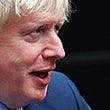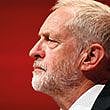UK: Why Tories are in ‘unprecedented’ disarray over Brexit
Boris Johnson dares opponents to agree to October 15 election

Also In This Package
London: Britain’s ruling Conservative Party is imploding this week as a result of a no-holds-barred battle over Brexit that has seen the expulsion of 21 moderate MPs, including Winston Churchill’s grandson, experts said.
In a culmination of decades of infighting over Europe, Prime Minister Boris Johnson axed the lawmakers, some of them former ministers, after they voted against the government’s hardline Brexit strategy.
Who are the expelled lawmakers?
Among those targeted were Philip Hammond, finance minister for three years until July, and Ken Clarke, parliament’s longest-serving MP dubbed ‘the Father of the House’. Nicholas Soames, the grandson of wartime prime minister Churchill — widely considered the greatest Conservative leader — was also told he must now sit as an independent.
There’s only one chlorinated chicken that I can see … and he’s on that bench … He is a great big girl’s blouse.

The cull, which could bar them from standing as Conservatives at the next election, came hours after Phillip Lee resigned to join the Liberal Democrats — the fifth ruling party MP to quit this year. “Sadly, the Brexit process has helped to transform this once great party into something more akin to a narrow faction,” he wrote in his resignation letter. He noted the party was no longer the “broad political church” he joined as a young man.
What is Johnson’s latest challenge?
Johnson on Wednesday challenged opposition Labour Party leader Jeremy Corbyn to agree to an October 15 parliamentary election, calling a Labour-led plan to try and prevent a no-deal Brexit a ‘surrender bill’. “This government will take this country out of the European Union on October 31st, and there is only one thing that stands in our way, it is the ‘surrender bill’ currently being proposed by the leader of the opposition [Corbyn],” Johnson told parliament. “Can I invite the leader of the opposition to confirm, when he stands up shortly, that if that surrender bill is passed, he will allow the people of this country to have their view on what he is proposing to hand over in their name, with an election on October the 15th.”
Why is the UK being compared to North Korea?
The Conservatives, one of the world’s oldest and most successful political parties, have long been dominated by divisions over Britain’s relationship with Europe. The issue contributed to Margaret Thatcher’s 1990 resignation after 11 years in power, while directly causing ex-premiers David Cameron and Theresa May to step down in the past four years. But political historians say the current fractures — and the response to them — are different. The sacking of such prominent Conservatives by Johnson, who had himself voted against the previous government twice earlier this year, has reportedly shocked even those working in Downing Street. “It’s like something out of North Korea,” one aide told the Politico website. “I honestly think they’ve completely overreached.”
Was it supposed to work out this way?
Cameron called the 2016 referendum in a bid to unify his party behind continued EU membership, with Nigel Farage, then leader of the United Kingdom Independence Party (Ukip), ascendant in the polls.
Labour wants a general election, and soon, but we will not fall for Boris Johnson’s tricks. Labour will not support a general election until we are confident that the threat of no deal has been removed.

But when Cameron lost the vote — with 52 per cent of Britons favouring Leave — and he was forced to resign, Brexit became the defining issue driving an ever bigger wedge through the party. May tried to promote consensus between the two rival camps, but her strategy failed as a string of Brexit hardliners resigned from the cabinet while moderates also left the government in disagreement. With Brexit stalled, voters deserted the Conservatives for Farage’s new Brexit Party in European Parliament elections this year.
So what happens to the conservatives now?
Boris Johnson became leader vowing to leave the bloc “do or die” on the delayed deadline of October 31, installing key figures in the victorious 2016 Vote Leave team in government. This has left the moderates opposed to a no-deal Brexit in what Hammond called Tuesday “the fight of a lifetime”. Some political analysts believe predictions of the party’s demise are premature — but the Brexit-fuelled divisions will be tough to repair.




